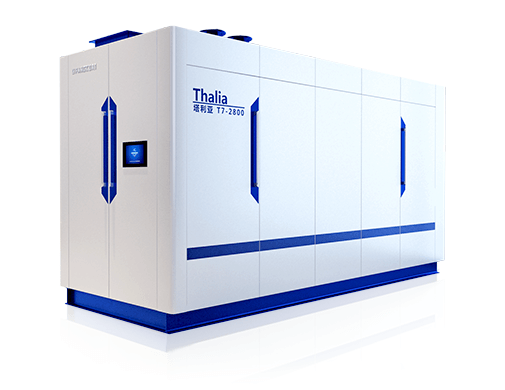Commercial Hot Water Boiler Prices
Introduction
Commercial Hot Water Boiler system can range anywhere from$10,000 to over $50,000. Like any major project, the price of a boiler install/replacement varies depending on a handful of factors, such as: The size of the boiler. The efficiency level of the boiler.
If you’re in the process of replacing a boiler, or are thinking about doing so, then you may be wondering how much it will cost. It’s important to get your facts straight before making a big decision like this because it can end up costing you a lot more than you bargained for. Keep reading to learn more about commercial boilers and how much they cost so that when the time comes for replacement or repair, you know exactly what options are available to meet your needs.

How much do commercial hot water boilers cost?
commercial hot water boilers cost
The cost of a commercial boiler depends on a multitude of factors. The size of the boiler, type of boiler and efficiency all contribute to the overall price tag. For example, an oil-fired condensing hybrid heat pump may be more expensive than an electric instantaneous hot water heater due to its advanced technology.
A number of other variables can affect the price as well:
- Location is important as it affects labor costs and fuel prices. This can make a big difference when comparing two boilers in different states or countries with very different prevailing costs for labor and materials.
- Brand matters because some manufacturers offer better warranties or services than others do; therefore, they might charge more for their products but save you money in the long run by making it easier for you to get repairs done quickly if anything goes wrong with your unit after purchase—or even just before purchase so that you know how much money could be saved if any problems arise later on down road (for example, maintenance fees are covered under warranty).
What is a commercial hot water boiler?
commercial hot water boiler
A commercial hot water boiler is a device that provides hot water for heating purposes. It can also provide hot water for various applications, such as washing machines and dishwashers. A domestic boiler is designed to heat the water in your home.

In addition to these differences, there are many other key distinctions between commercial hot water boilers and domestic ones:
- Commercial units are larger and more powerful than domestic models. They therefore require more space, but they also produce enough energy to power the building’s entire heating system at once – meaning you don’t have to worry about using multiple boilers or having separate systems for different rooms (like kitchens versus bathrooms).
- Commercial boilers are more complex than their residential counterparts because they’re designed for high-use scenarios where large volumes of water will be used during peak hours throughout the day. These units will often require routine maintenance as well as regular checks from a qualified professional who specializes in commercial installations; whereas with a home installation there might only be one person or family using it at any given time – thus making maintenance less frequent overall since there aren’t many individual components working together simultaneously like there would be with several dozen tenants all needing access at once during normal business hours every day throughout winter months when cold weather requires increased heating capacity.”
How long do commercial boilers last?
The durability and efficiency of a commercial boiler make it a better option than the typical domestic model. Commercial boilers are built to last, with some models boasting lifespans of up to 30 years. This is nearly double the lifespan of typically used domestic hot water boilers, which tend to last around 15 years when cared for properly. In addition to lasting longer than their domestic counterparts, commercial boilers are also more efficient because they produce hot water more quickly and at lower temperatures than standard home units do—meaning you won’t have to wait as long for your shower before being able to lather up with soap or shampoo!
Commercial-grade products also tend not only withstand wear and tear better than their standard equivalents but also require less maintenance due in part because those systems are designed specifically for commercial use; this means any repairs that do need doing will likely be less costly overall since they’ll likely involve replacing fewer parts (or none at all). That said though: even if something does break down on one model during its lifespan there may still be ways around having it fixed by simply replacing instead without having spent much money overall.”
How long does it take to install a commercial boiler?
commercial boiler install cost
You should always allow at least 3 days to complete installation of a commercial boiler. This time is usually used for lifting and fitting the unit, connecting it to existing pipework, commissioning and testing the installation. The duration of this process depends on a number of factors, including:
- The size of the boiler – larger boilers take longer to install.
- The type of boiler – more complex systems may take longer than simpler ones.
- The location of your new heating system – if it’s in an awkward spot or there are issues accessing it then installation can take longer than expected.
- Type/scale of project – small scale works like replacing radiators need less time spent on them than large scale projects like installing new heating systems for multiple buildings in an estate or industrial park area which require several days’ worth work from teams working together efficiently across many sites simultaneously
How does a commercial hot water boiler work?
How does a commercial hot water boiler work?
The commercial hot water boiler is a bit different than the one in your home. Commercial boilers are designed to be used in situations that require high pressure, such as large buildings like hotels and offices. This means that they have to be able to handle more heat than those for domestic use, which means they tend to be significantly larger.
Commercial boilers also differ from household models because they require their own dedicated systems for heating and cooling water. This means that you can’t simply hook up an existing system; rather, you’ll need an expert to make sure everything is properly installed before turning it on for the first time!
What classifies a boiler as a commercial boiler?
A commercial boiler is used in a commercial building. It’s larger than a domestic boiler and more powerful, with the capacity to heat large amounts of water at one time.
Commercial boilers are also often installed in industrial settings because they can provide sufficient heating for multiple buildings or even entire factories. Industrial boilers can be used for many different purposes, from power generation to chemical processing and manufacturing plants.
What’s the difference between commercial and domestic boilers?
Commercial boilers are designed to meet the demands of a commercial property, which means they’re larger and more powerful than their domestic counterparts. With larger capacities, commercial boilers need fewer operating cycles per day compared to domestic models.
Commercial boilers are also equipped with additional safety features that go beyond those found in domestic models. For example, commercial boilers have automatic overheat protection, meaning they will shut down if the temperature inside gets too high (over 100 degrees Celsius). This prevents damage or injury to employees and guests at your business location.
Commercial boiler prices are higher than domestic models for several reasons: firstly, because commercial boilers require more powerful engines and pumps; secondly, because they’re required to be energy efficient; thirdly, because there is an increased risk of injury from overheating if safety features aren’t installed during installation; finally—and most importantly—because installation costs tend to be higher for large-scale projects like this one
What are the types of commercial boilers?
There are four main types of commercial boilers: oil-fired, gas-fired, electric and biomass boilers. Oil-fired boilers are the most common because they’re inexpensive to run and easy to maintain. However, they do produce greenhouse gases so that’s something to consider when choosing your boiler type. Gas-fired boilers can be expensive but also produce less pollution than oil-fired ones. They cost less than electric boilers but require more maintenance work because electricity is needed for ignition. Biomass systems are environmentally friendly because they use a renewable fuel source such as wood chips or sawdust to heat water—plus they produce no emissions at all!
Conclusion
After reading this article, you’re well-versed in the different types of commercial boilers and their costs. Whether you are looking for a hot water boiler or steam boiler for your business, we hope we have helped you make an informed decision about which type will suit your needs best!
If you are still not sure which type of boiler is best for your , then we recommend that you contact us. We will be able to advise you on which type of boiler is best for your needs and provide information on its cost. WhatsApp: +86 132-1322-2805








